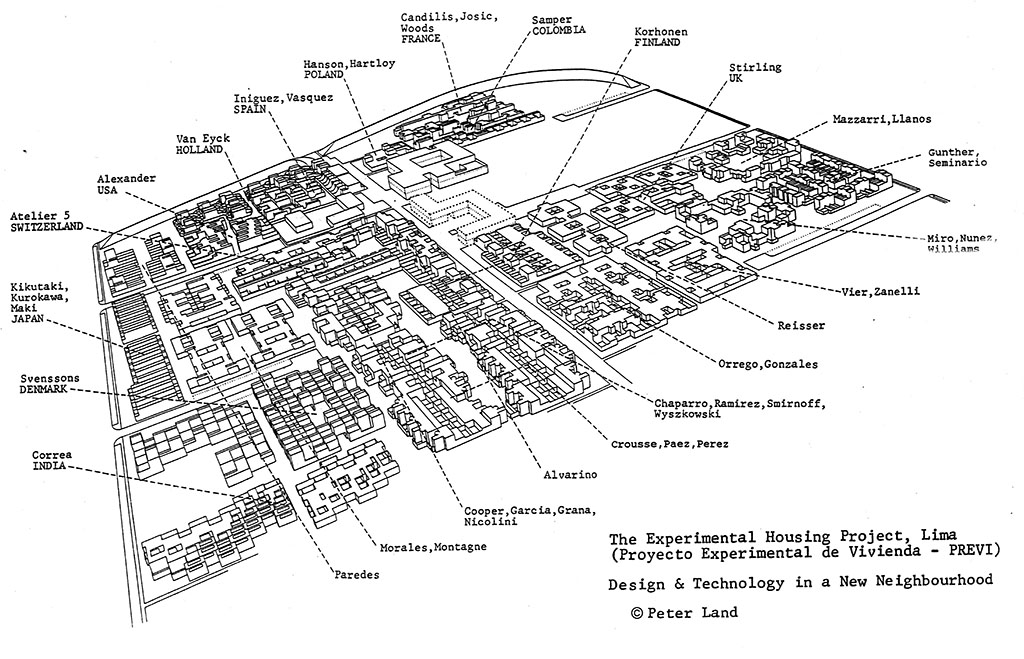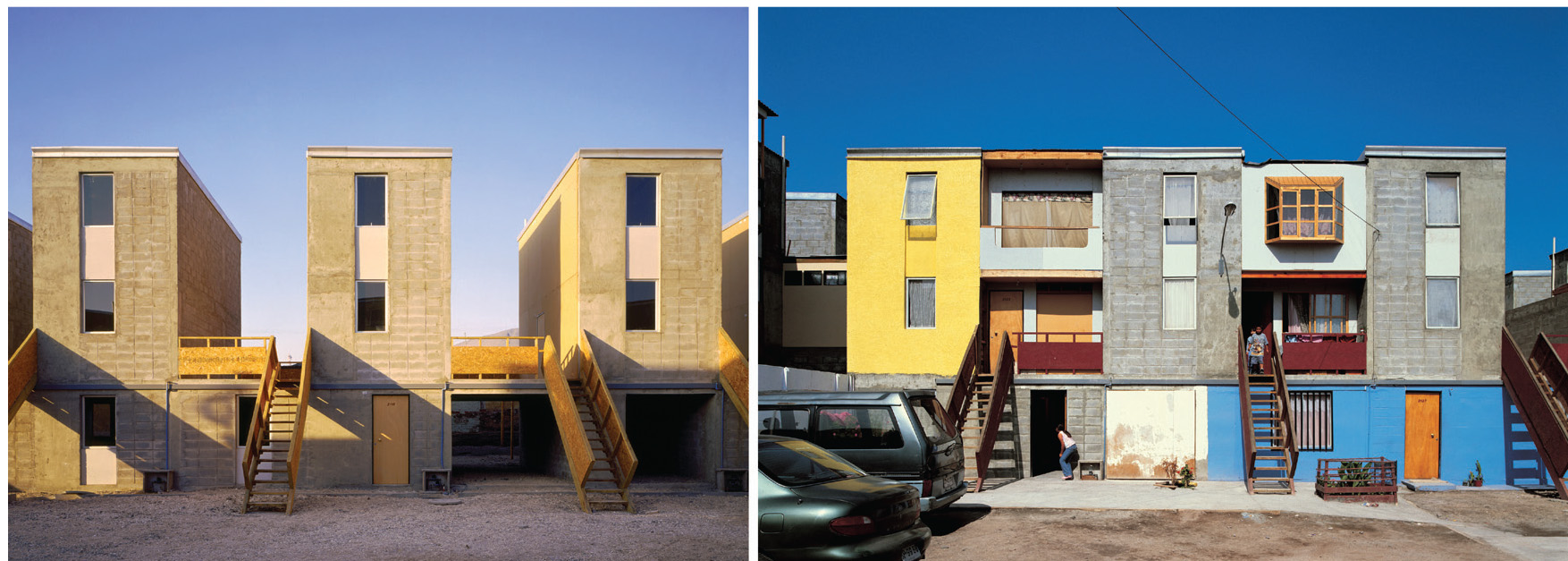SELF-HELP HOUSING
Self-Help Housing: Incremental Approaches to Shelter since 1965 is a research project that investigates the history of “incrementalism” in international development, architecture, and urban planning as it relates to housing for low-income, urban populations. Generous support for the initial phase of research — in Lima, Peru; Pereira, Colombia; Dakar, Senegal; Mumbai, India; New York City, USA; and Berlin, Germany — has been provided by a 2019 Guggenheim fellowship. This project has also benefitted enormously from a 2020 fellowship at MacDowell and a 2024 Independent Projects Grant from the New York State Council on the Arts and the Architectural League. This project forms the basis for my PhD research at Eindhoven University of Technology (TUe), as a member of the Curatorial Research Collective.
Incrementalism distinguishes itself from the traditional theory and practice of design by inviting and expecting the users of the designed object or building to continue to adjust or customize it long after the formal design process has concluded. Incorporating the expectation of change into design signals an embrace of the accretive or incremental quality inherent to all built environments. The affirmation of indeterminacy — in both meaning and final form — represents a significant shift in the philosophy of design. And while incremental strategies are currently gaining ground in contemporary urbanism, its history remains incompletely understood. In an era of rapidly increasing displacement in the face of rising seas and housing insecurity, this history warrants a deeper investigation if we are to realize the potential of incrementalism to help us deliver shelter that is flexible, responsive, sustainable, and just.
In the US alone, the crisis surrounding housing affordability in the United States is reaching a fever pitch: the majority of people in the 100 largest US cities are now renters, and the majority of those renters spend more than half their income on rent. Homeownership rates are falling as costs continue to increase, construction productivity continues to decline, and wages continue to stagnate. Meanwhile, around the world, the proportion of urban dwellers who live in substandard housing could grow to as many as 1 in 3 in the coming years: more than 1.5 billion people. The massive displacement promised by increased climate disruptions and political violence makes the need for sustainable forms of shelter all the more urgent. We need a lot of new ideas to address this emergency; we also need to understand the promise and the pitfalls of overlooked knowledge from the recent past.
Existing scholarship on incremental strategies to shelter is primarily concerned with international development policies, particularly in terms of informal settlements and slum upgrading strategies in the Global South in the 1960s and ‘70s. My project will build on this literature, but will seek to connect it more explicitly to urban spatial theory, the political philosophy of cities, and our contemporary moment. The work will resist traditional distinctions between the study of rich country and poor country cities. It will uncover connections between institutional, governmental, and architectural approaches to the provision of shelter. And it will reject the facile dichotomy of top-down or bottom-up approaches to design-based strategies of addressing the effects of poverty. The incremental tradition, in fact, offers powerful examples of activists and designers in places like New York City and Berlin learning from precedents of people building their own housing in the urban peripheries of Dakar, Lima, or Karachi.
My intention is not exclusively to argue for the increased adoption of incremental strategies in design practice, but also to use a historically and theoretically informed analysis of incrementalism in order to destabilize traditional scholarly distinctions between the study of architectural history, housing policy in Western European and American cities, international development strategies for informal settlements, and social scientific approaches to urbanism. The methodologies and literatures of each discipline will contribute to an argument for integrating urban planning and design processes into the long-term analysis of human settlement. Thus, the research itself will advance the study of cities by reconfiguring how time, change, social practices, and human agency are considered within urban theory.
April 2019
Index: Cities, Writing, Research



